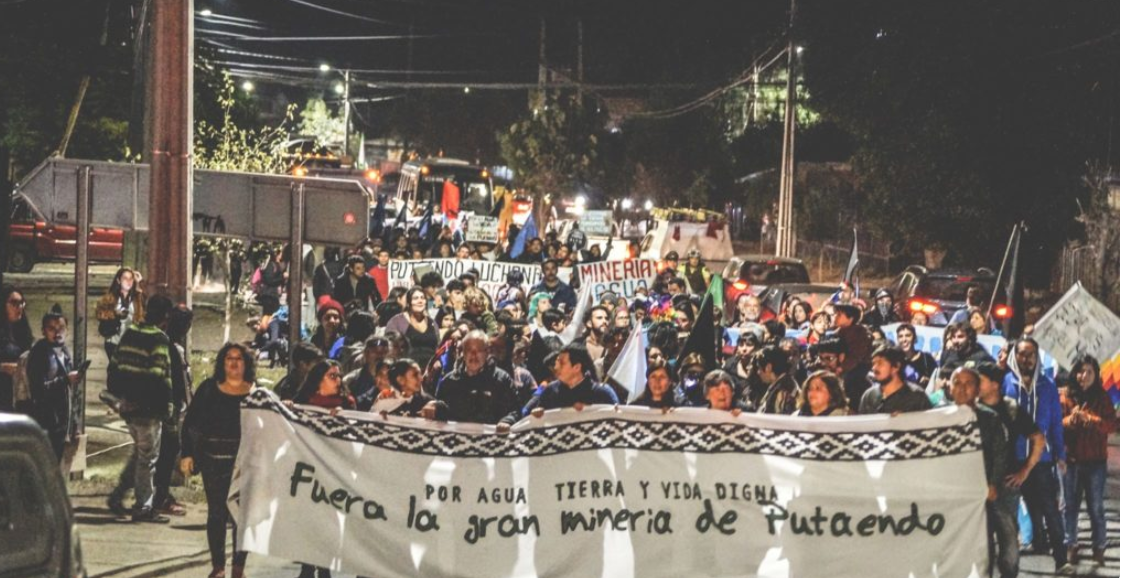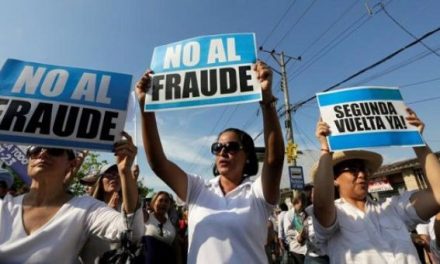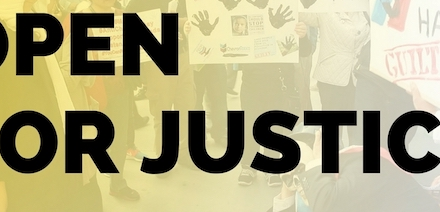Across Latin America, Canadian mines have experienced outbreaks of COVID-19 as several country’s authorities move to limit dissent and grow the industry. According to locals and researchers, these moves are proving increasingly threatening to fragile ecosystems and community economies.
n Panama, Canada’s First Quantum Minerals continued operating its regional mine through the epidemic despite one worker dying from the disease. By the time health authorities ordered the company to suspend its activities 850 workers had been counted in quarantine. Total deaths were brought to five.
Another outbreak occurred in Chumbivilcas, southern Peru, at Hudbay Minerals’ Constancia mine. The Canadian company initially denied that an outbreak had occurred in Chumbivilcas, stating officially, “at present there are no confirmed cases of COVID-19.” But the next day, the region’s health network noted the company had tested 18 positive cases among workers.
The revelation of these positive cases fueled existing “citizen disillusionment” around the mine. Locals have seen their wetlands dry up and the contamination of a local river by sewage and wastewater.
Elsewhere in Peru’s Andean region, the Antamina copper mine, co-owned by Canada’s Teck Resources, was put under criminal investigation for allegedly violating sanitary measures, “disobedience” and “resistance to authority.”
Workers at Antamina had reported symptoms of the virus. But the company’s security superintendent initially denied outbreaks after a growing number of enraged employees gathered to protest insufficient testing.
The spokesman identified these people as having nothing but the common flu. Thus, the mine refused to shut down. Roughly two weeks afterwards, one worker died and another 120 were infected.
Andacollo’s Teck Mine
The situation is little different in Chile where communities remain divided over mining operations. Serious concerns mount as the country suffers its worst drought in the past sixty years. Meanwhile, Chili’s copper industry—of which a possible majority is owned by Canadian companies—uses 1.5 times the water that Toronto’s 2.8 million residents consume annually.
In Andacollo, some distance north of Chili’s capital, Teck owns a 90 percent stake in its controversial Carmen de Andacollo mine. The commune is saturated with contamination, suffering some of the highest levels of air pollution on the continent. Like other operations that find themselves in rural Latin America, it was the promise of wealth that had to accompany Teck’s introduction. But a bitter labour dispute broke out in 2019 when, after record profits, the company reported it would be cutting 500 positions.
An elected Councillor of Andacollo, Javier Cifuentes Gonzales, told The Post Millennial that on Friday he was informed of three infections from a contractor company doing work in the community’s mines and that he was waiting for the result from a Teck worker. On Saturday, he added two more infected to the town.
Gonzales states that Teck has not stopped operating, which puts the community at constant risk of contamination only exacerbated by the dust suspension generated by its activities.
“The union is concerned about the safety of their colleagues. The problem is that they have a dictator manager with no humanity.” said Gonzales, noting that the mine’s manager has avoided coming to the local council when his presence was directly requested.
“Armed to the teeth” in Putaendo
In Putaendo, another city of Chile, hundreds of police and military personnel, reportedly “armed to the teeth,” recently flooded its streets to supervise extractive activity. Unlike Andacollo, Putaendo has no established large-scale mines. It has, however, been eyed by a Canadian junior for preliminary exploration.
The company, Los Andes Copper, which has previously run into legal trouble for “irregular” and unauthorized drillings, had 350 drillings cleared by Chilean authorities in the commune of Putaendo.
Putaendo, which translates to “swamps formed by springs” was named for its snowdrifts that used to provide extensive swamps and abundant springs. It is a commune of agriculturalists and livestock producers who depend on growing nectarines, grapes, nuts, avocados and collecting their cattle’s’ milk. It has not, however, been immune to the drought invading Chile, so severe as to kill its most resilient shrubs.
Mining and even exploratory drilling can compromise what little water remains. Drilling activity alone can rupture natural filtration systems deep in the earth. Without filtration, potable water cannot escape initial contact with the ground’s hidden toxic minerals. Researchers have already tracked an increase of heavy metal content in water nearing recent drilling by Los Andes Copper.
“The planned mine itself is going to be built on top of the Rocine river,” added Kirsten Francescone, a researcher at MiningWatch Canada. “It’s an agricultural region. They’re small scale farmers and they want to continue to farm and they’re worrying that these mines are going to prevent them from doing so.”
One community member of Putaendo reported to Francescone that a hundred of his cattle died on a miles walk to drinking water. Traditional pasture lands have been cordoned off for other companies’ mining activities, making available water a distant promise.
The citizens of Putaendo have participated in marches against mining. In response to the police presence, residents hung up banners in their local communities condemning the mine.

Opposition in Ecuador
In the southern Ecuadorian Amazon, two people have died from COVID-19 after their close relatives traveled to a Toronto mining conference during the pandemic. The local Canadian mining company, Solaris Resources, was widely condemned for bringing seven unelected members to a mining fair for a “consultation process” with Global Affairs Canada. The process was seen as a cheap farce of international standards for consultation.
In the province of Zamora Chinchipe, locals led by their mayor blocked trucks from entering the Fruta del Norte mine co-owned by Canada’s Lundin Gold. The population was afraid that new people entering the community could spread COVID-19. Their fears were met with tear-gas, known to inflame airways, weaken the immune system, and elicit sneezing and coughing.
Three local authorities were detained at the protest: a police officer, a firefighter, and a Councillor.
n the mountainous ranges of Intag, Chilean and Australian mining giants, as well as a Canadian junior mining company, have concession rights. The region is temperate and subtropical, abundant with clean water, and home to a number of endangered species, including the Andean spectacled bear.
There, the Cuellaje parish’s President and Vice President were recently threatened with charges that could land them in jail for one to three years if they approve administrative measures to prohibit mining in Intag. These threats of government prosecution followed a communique sent by the Cuellaje parish to Ecuador’s president. The communique detailed concerns over the $39 billion Llurimagua project being pushed forward in the area.

Ned Cresswell ran for Vice President with the parish president on what he describes as a platform based on a “100 percent conviction” that mining proposals must be fought out of the region.
“What used to be a lazy job, with no one really interested in the comings and goings of the elected parish president, has transformed with our election into an intensely scrutinized task,” said Cresswell. “We are permanently obliged to run an election campaign, with all its dirty tricks.”
Cresswell says the local “big cheeses” looking to “do deals” with mining companies feel threatened by the councilmen, one, a president with only primary education, the other, a vice president, a foreigner who married a poor local woman.
“The illegal miners, who often work in cahoots with the legal companies, have threatened us with death, though again this is done quite carefully; videos of torture and extrajudicial killings sent through social media are not technically death threats.”
A “very Canadian way of doing business”
Ecuador’s federal government has expressed its intention to use mining to “reactivate the economy.” This strategy is almost certain to run into resistance in Ecuador. A national consultation in 2018 saw 69% of Ecuadorians voting to “prohibit mining in all its stages” in natural and urban areas.
Nonetheless, the Canadian ambassador to Ecuador, Sylvie Bedard is widely promoting Canadian mining in the press and other media, citing its “responsible business conduct” and “very Canadian way of doing business.”
According to Raul Burbano, a researcher at Common Frontiers who has participated in election monitoring in countries like Venezuela and Bolivia, despite being advertised as responsible it is often difficult to hold Canadian companies accountable.
“If a government is to revoke the environmental mining licence for a mining company, government’s can be sued in international tribunals which is very common,” said Raul, echoing a study of Canada’s highly litigious mining industry.
Despite accounting for 22 percent of Canadian investment abroad, Canada’s extractive sector composes 70 percent of cases in private trade tribunals. Countries have been made to pay millions for hampering the profitability of Canadian companies.
“That trickle down incentive—that there will be jobs and tax revenue generated by these companies—often is not what is happening,” said Raul. “Often mines benefit a few small elite groups of people. Often they’re in government. Often there’s a lot of corruption involved.”
“It is not trickling down to local communities, the people who really need it: the campesinos, the workers.”






